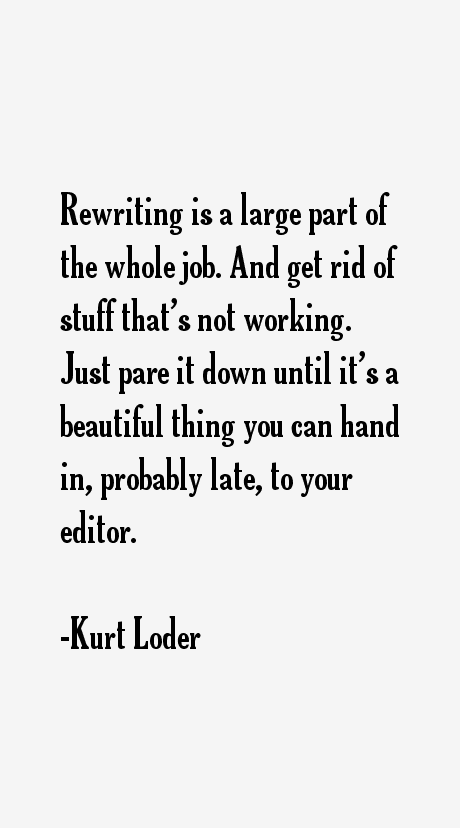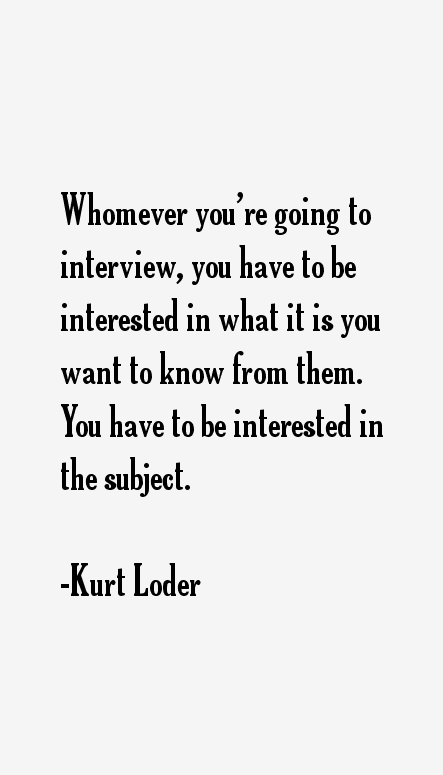Kurt Loder Quotes & Sayings
30 most famous Kurt Loder quotes and sayings. These are the first 10 quotes we have for him. He's an 80 year old American journalist born on May 5, 1945.
“If your audience is young, it'd be youth culture, if your audience is older, it'd be older people, if it were senior citizens, it'd be senior citizen issues. So you try and hit the target audience.”

“So you shouldn't really flatter yourself that they want to be your buddy. They don't. Generally. They want you for some reason or other, and you just have to fend that off all the time.”

“Rewriting is a large part of the whole job. And get rid of stuff that's not working. Just pare it down until it's a beautiful thing you can hand in, probably late, to your editor.”
“You find the most important thing that really grabs you, and put it right up top. Don't bury the lead. Put it at the top. Best thing to do. Never go wrong that way. It's an immutable law of journalism. It just always works.”

“Whomever you're going to interview, you have to be interested in what it is you want to know from them. You have to be interested in the subject.”
“And so popular culture raises issues that are very important, actually, in the country I think. You get issues of the First Amendment rights and issues of drug use, issues of AIDS, and things like that all arise naturally out of pop culture.”

“If you ask questions that interest you, you'll get answers that interest your audience.”

“I came over here and worked for rock magazines, and I worked for Rolling Stone, which has a very high standard of journalism, a very good research department.”

“I worked for a newspaper in Europe for, I lived in Europe for about seven years, so I worked in this sort of a yellow journalism kind of a thing, it was like a scandal sheet.”
“It's not a good thing to be friends with people you're covering. There's just no point in doing it. It's tempting, but they're not going to consider you their friend anyway. They just know that you're somebody that can do something for them.”
Kurt Loder Quotes Rating
No Ratings Yet
Leave A Comment
























